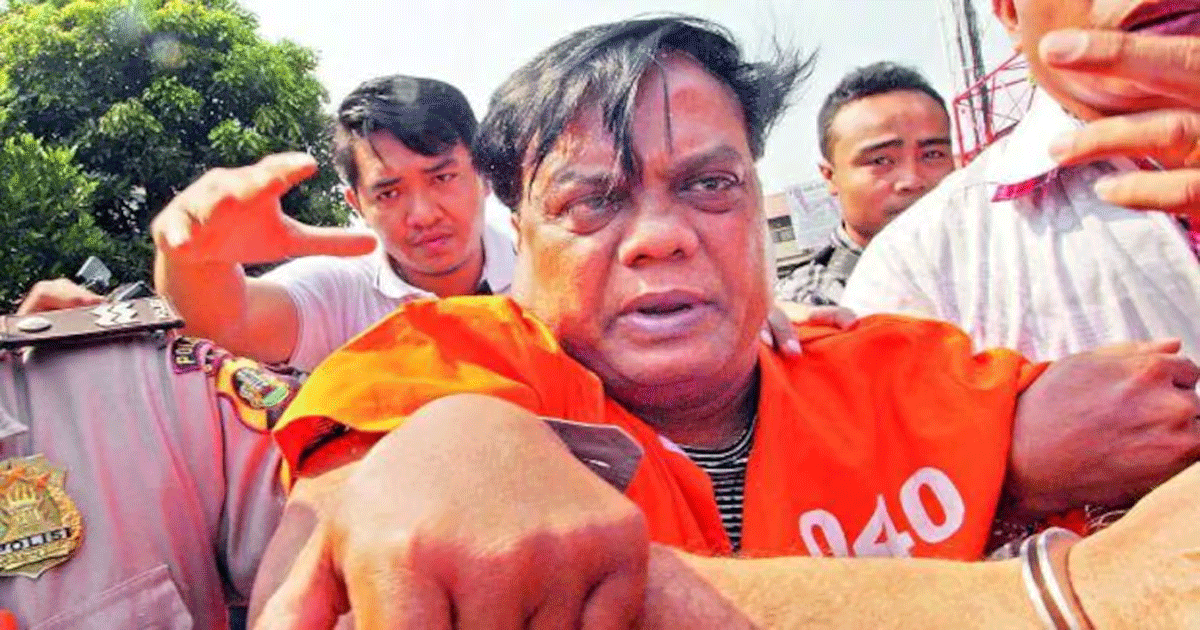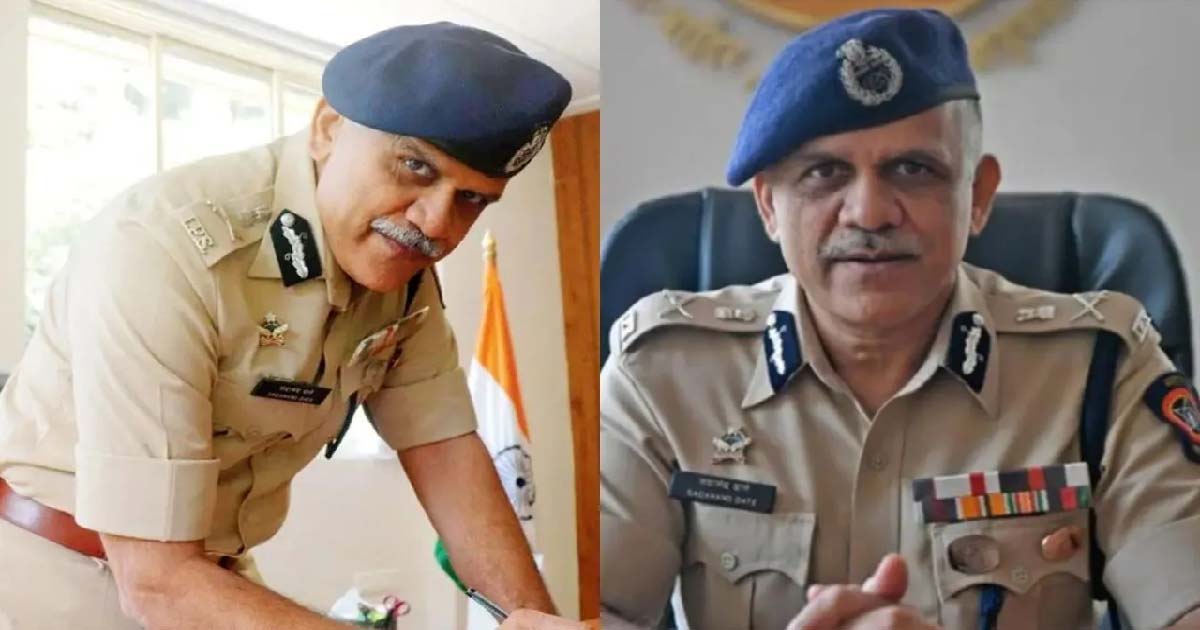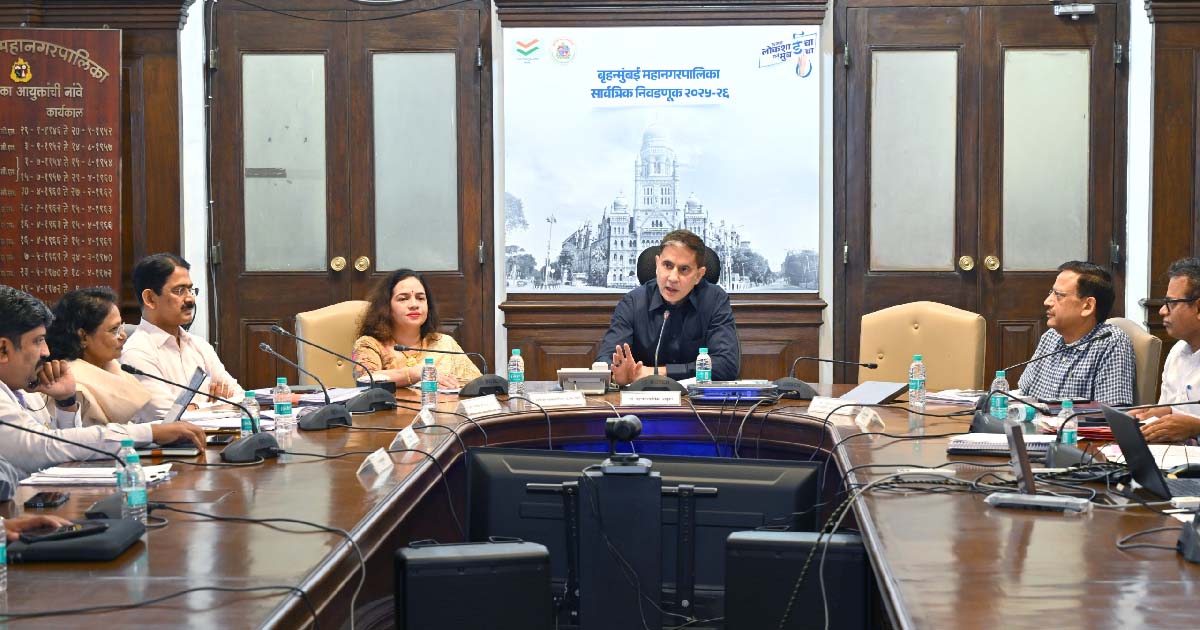Maharashtra
Mumbai: Bombay HC Suspends Gangster Chhota Rajan’s Life Sentence, Grants Bail In 2001 Jaya Shetty Murder Case

Mumbai: The Bombay High Court on Wednesday suspended the life sentence and granted bail to gangster Chhota Rajan in the 2001 hotelier Jaya Shetty murder case. Rajan was convicted and sentenced to life imprisonment in the case in May this year. Divisional bench of Justice Revati Mohite Dere and Justice Prithviraj Chavan has given him bail for Rs 1 lakh.
The gangster will continue to remain in jail in connection to other matters against him.
Rajan had filed an appeal in the Bombay High Court against the conviction in the Jaya Shetty murder case. The gangster sought that the sentence be suspended and he be granted bail in the interim.
Who Was Jaya Shetty?
Jaya Shetty was the owner of Golden Crown Hotel at Gamdevi in Mumbai. He was shot dead by two alleged members of Chhota Rajan’s gang on the hotel’s first floor in May 2001.
A probe suggested that Shetty had received extortion calls from Hemant Pujari, a member of the Chhota Rajan gang, and was killed because of his failure to pay the money, PTI report said.
Rajan is already serving a life term for the murder of veteran crime reporter J Dey, and is currently lodged at the Tihar jail in Delhi.
Maharashtra
Sadanand Data’s path to becoming DGP is paved, Data will succeed Rashmi Shukla in Maharashtra, will take charge from January 1

NIA Chief Sadanand Date: The Appointments Committee of the Cabinet (ACC) of the Central Government has taken a significant administrative decision, approving the immediate repatriation of National Investigation Agency (NIA) Director General and senior IPS officer Sadanand Vasant Date to his parent cadre in Maharashtra. This order, issued on December 22nd, is considered highly significant from both an administrative and political perspective.
Sadanand Date is a 1990 batch IPS officer and is known as a strict, honest, and experienced officer at both the central and state levels. During his tenure as NIA chief, the agency’s role in several sensitive and national security-related cases was further strengthened. Under his leadership, the NIA’s efficiency and credibility have increased.
This decision comes at a time when elections for the Brihanmumbai Municipal Corporation (BMC) are scheduled for January. The BMC is one of the largest municipal corporations in the country, and maintaining law and order during its elections is a major challenge for the state police. Therefore, experienced leadership at both the central and state levels is considered crucial.
The term of the current Director General of Police (DGP) of Maharashtra, Rashmi Shukla, ends on December 31st. In this context, Sadanand Date’s name is being considered as a frontrunner for the next DGP of the state. According to administrative sources, Date’s appointment could ensure a fair and robust security arrangement during the elections.
Sadanand Date is known as the courageous officer who directly confronted terrorist Ajmal Kasab at the Cama and Albless Hospital during the 26/11 Mumbai terror attacks. He was seriously injured during the incident, but his courage and dedication to duty earned him national recognition.
If Sadanand Date is appointed as the new DGP of Maharashtra, it will be considered a major and positive step for the state’s law and order and security apparatus. Administrative circles believe that his appointment will boost the morale of the police force and help in conducting the upcoming elections peacefully.
Maharashtra
Mumbai: Rickshaw driver beaten up in Vikhroli on suspicion of child theft, burqa-clad driver did this to collect fare, police claim

Mumbai: Vikhroli Park Site, after the rumor of a child theft, chaos broke out and an auto rickshaw driver was attacked by a mob when he went to the street of Vikhroli Madina Masjid dressed in a burqa to collect his fare. During this, people suspected that the child had come to steal, after which the mob beat him up, but the police reached the spot and then took him into their custody. During interrogation, it was found that the child had not come wearing a burqa to steal but to collect the fare. He was dressed in a burqa so that no one would recognize him and he could easily collect his fare and go back, but unfortunately, the people caught him and the police took him out of the mob’s possession and safely took him to the police station. After that, the police confirmed that the child had not come to steal. Further investigation is underway in this matter. The police said that along with the investigation, it is also being found out whether he really came to collect the fare or not. He is a thief. Initial investigation has revealed that the child is not a thief. The police have confirmed that the rickshaw driver is not a thief.
Maharashtra
Municipal Corporation in Mumbai is committed to conducting administration and election process in a fearless, free and transparent environment: Bhushan Gagrani

Mumbai: Municipal Corporation Administration and Election System Mumbai Municipal Corporation is committed to conducting the election process for the general elections 2025-26 in a completely fearless, free, transparent and disciplined environment. In this regard, the Mumbai Municipal Corporation Administration has made all and extensive preparations and all necessary measures are being implemented effectively. The role of political parties is very important in the election process. In order to promote democratic values and make the election process fair, transparent and credible, all political parties, their office bearers and workers should strictly follow the code of conduct framed by the State Election Commission and cooperate with the Municipal Corporation Administration. A positive and exemplary example should be set in the electoral process, this appeal was made by Municipal Commissioner and District Election Officer Bhushan Gagrani. A meeting was held with representatives of political parties at the Municipal Corporation headquarters today in connection with the Mumbai Municipal Corporation general elections 2025-26. On this occasion, Gagrani presented detailed information about various administrative, technical and legal aspects of the elections.
Additional Municipal Commissioner (City) Dr. Ashwini Joshi, Special Duty Officer (Election) Vijay Balmwar, Joint Commissioner (Tax Assessment and Collection) Vishwas Shankarwar, Assistant Commissioner (Taxation and Collection) Gajanan Belle, UP Election Officer Vijay Kumar Suryavanshi and other office bearers and representatives of various political parties were present in the meeting. Political parties were provided detailed information about the offices of 23 Election Decision Officers and their scope of work for the smooth conduct of the elections. Along with this, guidance was also given on the process of filing nomination papers, scrutiny of applications, registration of objections and how to contact these offices for day-to-day work in the election process. Municipal Commissioner Shri said that all necessary arrangements have been completed at the level of the Election Decision Officer so that the candidates do not face any technical problems.
Additional Municipal Commissioner (City) Dr. Ashwani Joshi said that all guidelines have been given so that the candidates do not make any mistakes while filing nomination papers (candidate applications) for the elections. The concerned persons should submit all the information in the prescribed format. Candidates should take special care that no application is rejected due to technical difficulties. It is mandatory for the candidates to fill all the information correctly and clearly in the affidavit submitted with their application. He said that if any column is left blank in the affidavit or if incorrect information is found, the nomination of the candidate, along with all other matters, can be cancelled.
Joint Commissioner (Tax Assessment and Collection) Vishwas Shankarwar said that the main objective of the administration is to increase the voting percentage to strengthen democracy. For this, political parties should create awareness among the voters. Public awareness is being created among the voters under the ‘SVEEP’ program by the Municipal Corporation. Also, it is mandatory to follow the guidelines of the esteemed State Election Commission regarding election expenses. Candidates should keep a record of every expense incurred during the election campaign and submit the account of election expenses within the stipulated time. Various doubts raised by the representatives of political parties on various issues were cleared including caste verification certificate, toilet usage certificate, Appendix 1 and Appendix 2, appointment of representatives of election candidates.
-

 Crime3 years ago
Crime3 years agoClass 10 student jumps to death in Jaipur
-

 Maharashtra1 year ago
Maharashtra1 year agoMumbai Local Train Update: Central Railway’s New Timetable Comes Into Effect; Check Full List Of Revised Timings & Stations
-

 Maharashtra1 year ago
Maharashtra1 year agoMumbai To Go Toll-Free Tonight! Maharashtra Govt Announces Complete Toll Waiver For Light Motor Vehicles At All 5 Entry Points Of City
-

 Maharashtra1 year ago
Maharashtra1 year agoFalse photo of Imtiaz Jaleel’s rally, exposing the fooling conspiracy
-

 National News1 year ago
National News1 year agoMinistry of Railways rolls out Special Drive 4.0 with focus on digitisation, cleanliness, inclusiveness and grievance redressal
-

 Maharashtra1 year ago
Maharashtra1 year agoMaharashtra Elections 2024: Mumbai Metro & BEST Services Extended Till Midnight On Voting Day
-

 National News1 year ago
National News1 year agoJ&K: 4 Jawans Killed, 28 Injured After Bus Carrying BSF Personnel For Poll Duty Falls Into Gorge In Budgam; Terrifying Visuals Surface
-

 Crime1 year ago
Crime1 year agoBaba Siddique Murder: Mumbai Police Unable To Get Lawrence Bishnoi Custody Due To Home Ministry Order, Says Report












